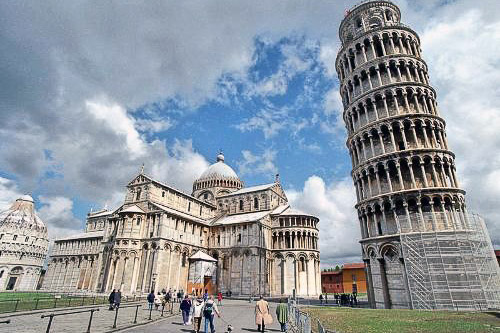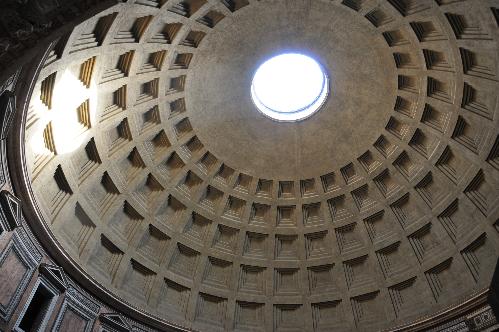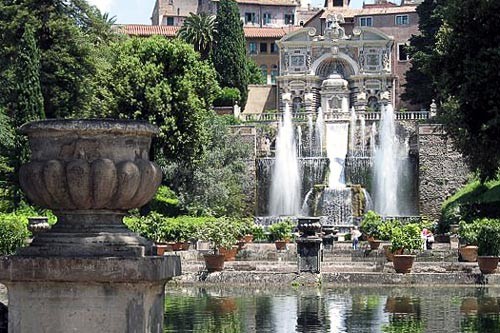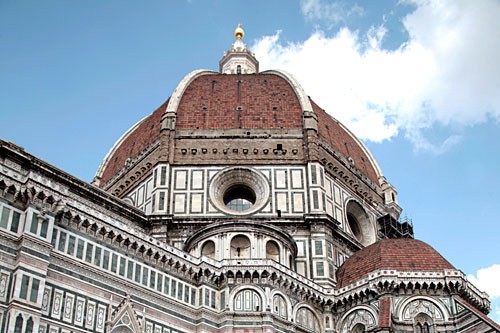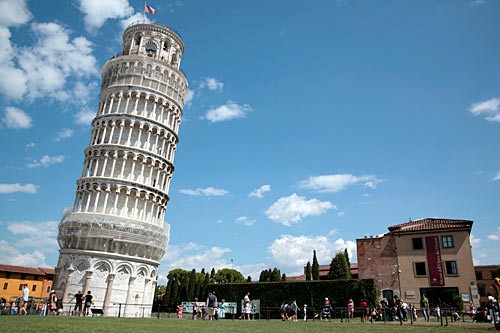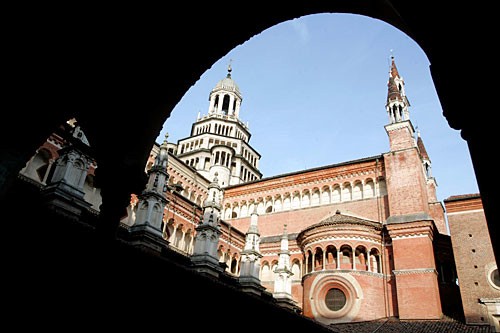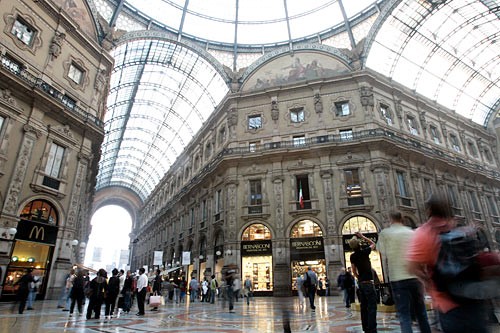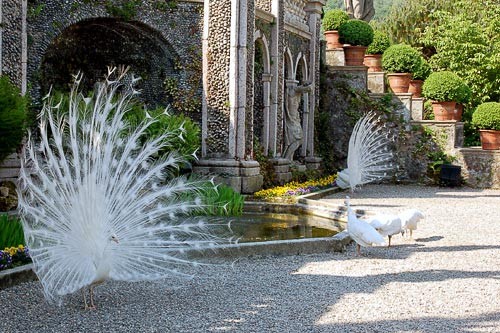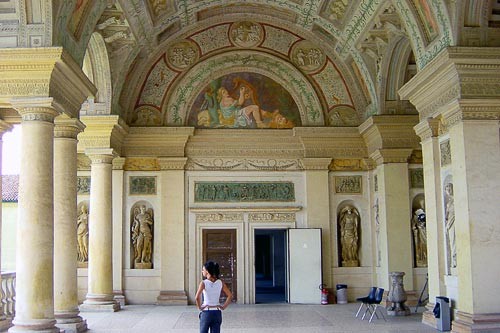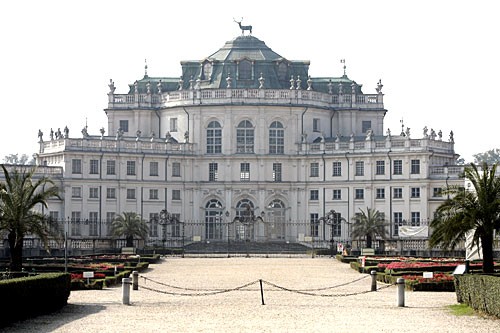Best Italian Architecture: Brunelleschi and More
By Sylvie Hogge Murphy
For architecture buffs, Italy is catnip. In every major, and most minor, city are wonderful churches, ruins, and other works of architecture. But the following nine buildings never fail to amaze us -- even after repeat visits.
Photo Caption: Vernazza and the other Cinque Terre towns can be reached on foot, by train, or by sea.
Photo Caption: Pisa's Battistero and tower are part of the piazza known as the Field of Miracles.
Photo Caption: Vernazza and the other Cinque Terre towns can be reached on foot, by train, or by sea.
Photo Caption: Pisa's Battistero and tower are part of the piazza known as the Field of Miracles.
Pantheon, Rome
The best-preserved and most elegant ancient building in Rome -- if not the world -- was built and possibly designed by Hadrian from 118 to 125 A.D. and is crowned with a 44m-wide (143-ft.) dome, poured in concrete almost 2,000 years ago and never structurally modified.
Photo Caption: Interior of the dome of the Pantheon, Rome.
Photo Caption: Interior of the dome of the Pantheon, Rome.
Villa d'Este, Rome
Whimsical grottoes, rushing flumes, and reflecting pools lace the gardens of the pleasure palace of Renaissance noble and cardinal Ippolito d'Este.
Photo Caption: Villa d'Este, located in Tivoli outside of Rome. Photo by MargaritaS/Frommers.com Community.
Photo Caption: Villa d'Este, located in Tivoli outside of Rome. Photo by MargaritaS/Frommers.com Community.
Brunelleschi's Dome, Florence
Filippo Brunelleschi's iconic dome is one of the world's most magnificent examples of Re- naissance architecture, and on a climb to the top you'll experience the inventive double-shell design firsthand as you squeeze between the interior and outer domes.
Photo Caption: Brunelleschi's dome topping the Duomo has crowned the Florentine skyline since 1436.
Photo Caption: Brunelleschi's dome topping the Duomo has crowned the Florentine skyline since 1436.
Leaning Tower, Pisa
The very word "Pisa" conjures images of a jauntily askance, ornate white marble cylinder, framed by sunny blue skies and as iconic of Italy as pizza and tomato sauce. A view and a photo session do not suffice: Climbing the tower is one of Italy's most exhilarating experiences.
Photo Caption: Pisa's torre pendente, or Leaning Tower, has lurched almost since its first stones were laid in 1173.
Photo Caption: Pisa's torre pendente, or Leaning Tower, has lurched almost since its first stones were laid in 1173.
Certosa di Pavia, Pavia
This city south of Milan was a court for the ruling Visconti and Sforza families, and at the Certosa they are entombed behind a facade of richly colored marble, amid frescoes, paintings, and elaborate statuary. Cistercian monks reside at the Certosa in two-story cottages -- each with its own garden plot -- that surround the enormous cloister.
Photo Caption: The Certosa is just one among many architectural wonders of oft-missed Pavia.
Photo Caption: The Certosa is just one among many architectural wonders of oft-missed Pavia.
Galleria Vittorio Emanuele II, Milan
The glass-covered shopping arcade at the center of Milan, tucked between the Duomo and La Scala and inaugurated in 1867, is the prototype for shopping malls around the world. Milanese are proud to refer to their landmark as the "Salotto di Milano" (Living Room of Milan).
Photo Caption: The glass-roofed 1867 Galleria Vittorio Emanuele II became a model for shopping malls worldwide.
Photo Caption: The glass-roofed 1867 Galleria Vittorio Emanuele II became a model for shopping malls worldwide.
Palazzo Borromeo, Lago Maggiore
The gardens and palace built for a distinguished line of Milanese cardinals and counts on a rocky outcropping in Lago Maggiore are insanely excessive but a marvel to behold.
Photo Caption: Peacocks on the grounds of Palazzo Borromeo, Lago Maggiore. Photo by catmarble/Frommers.com Community.
Photo Caption: Peacocks on the grounds of Palazzo Borromeo, Lago Maggiore. Photo by catmarble/Frommers.com Community.
Palazzo del Teè, Mantua
On the monumental archway at the entrance to the pleasure palace of Federico II Gonzaga, the keystone appears to be falling out of place -- a foreshadowing of the whimsy that lies in the salons beyond, where every surface is covered with
frescoes and stuccos.
Photo Caption: Palazzo del Te, Mantua. Photo by Allie Caulfield/Flickr.com.
Photo Caption: Palazzo del Te, Mantua. Photo by Allie Caulfield/Flickr.com.
Stupinigi, Turin
Filippo Juvarra had more than a simple lodge in mind when in 1729 he created this retreat amid the Savoy hunting grounds: 137 rooms and 17 galleries are strung out along four angled wings off an oval-shaped main hall topped by a bronze stag.
Photo Caption: The bronze stag atop the Stupinigi hints at the palace's original use as a royal hunting lodge for the Savoys.
Photo Caption: The bronze stag atop the Stupinigi hints at the palace's original use as a royal hunting lodge for the Savoys.





